The House Doesn’t Always Win: The Rise and Fall of Trump’s Casino Empire
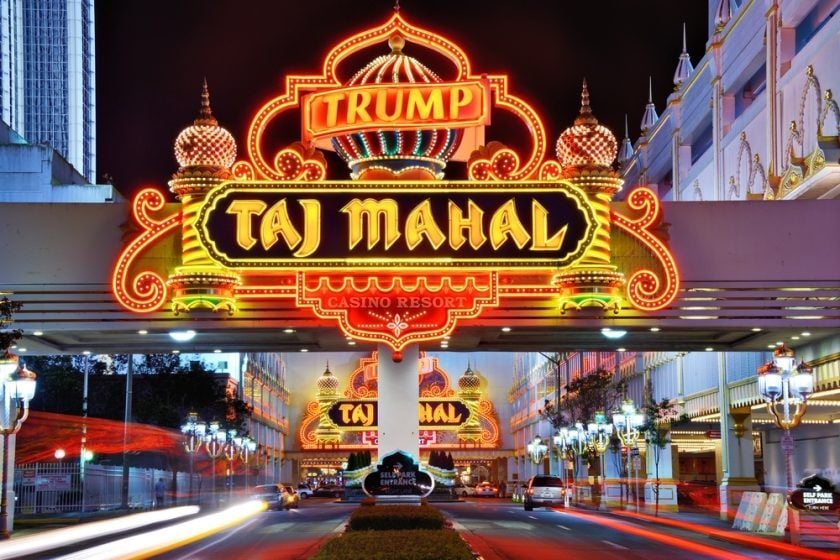
Tracing Donald Trump’s Turbulent Casino Journey
Before Donald Trump became a household name in politics and reality television, his business ambitions stretched across several industries-including luxury real estate and the high-stakes world of casino gambling. While his reputation soared thanks to towering yacht-high rises and The Apprentice, it’s the rollercoaster trajectory of his casino ventures that offers a fascinating glimpse into the volatility of the industry, marked by bankruptcies, regulatory scrutiny, and brushes with scandal. Today, Trump’s name is absent from the marquee of any active US casino.
This article explores the full narrative arc of Trump’s American casino projects, from glitzy grand openings to well-publicized financial failures and ultimate closures.
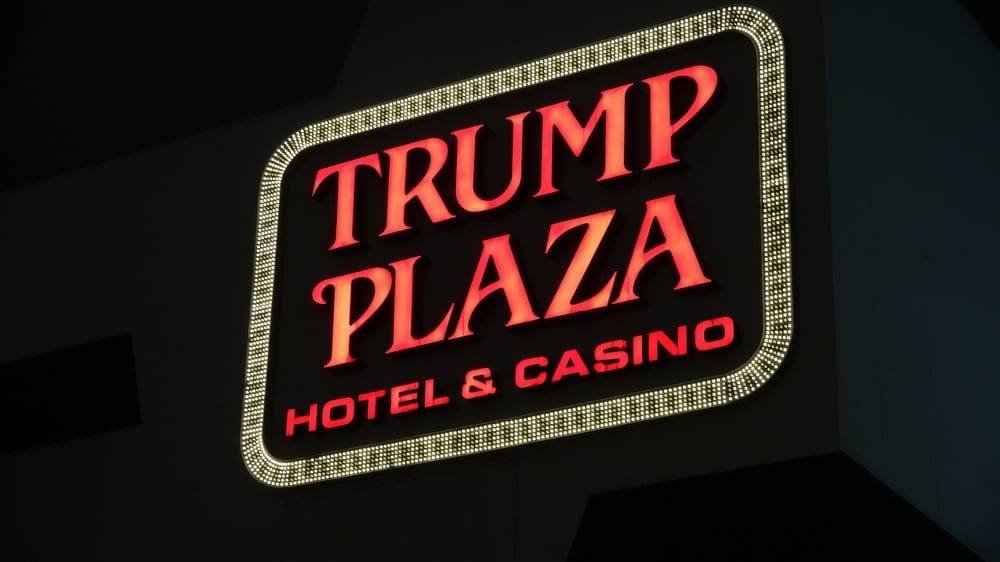
Image credit: Cheapbooks/Shutterstock
The Saga of Trump Plaza Casino and Hotel
Donald Trump’s path to casino ownership began with his ascent in the family real estate business, eventually taking over and renaming it the Trump Organization. In 1982, Trump received a casino license from New Jersey’s Casino Control Commission after a lightning-fast approval process-just two hours, versus the traditional months-long wait.
Initially, Trump partnered with Holiday Inn’s gaming division, Harrah’s, to open the hotel as Harrah’s at Trump Plaza in 1984. By year’s end, the venue had rebranded as Trump Plaza to avoid confusion with another Harrah’s property in the area.
Financial Turbulence and Early Disputes
Despite the fanfare, Trump Plaza’s first year saw modest profits-just $144,000 before taxes by mid-1985. Disagreements with Harrah’s escalated, particularly after Trump acquired and named a separate hotel ‘Trump’s Castle.’ Harrah’s objected to the similarity in naming, but Trump ultimately prevailed in court. He soon bought out Harrah’s share for $70 million, purchased neighboring properties for expansions, and acquired a bankrupt hotel to annex to the casino.
The late ‘80s and early ‘90s brought some notable moments, including the famous baccarat match where Japanese gambler Akio Kashiwagi lost $10 million-an event that inspired a scene in Martin Scorsese’s film Casino. However, public belief that Trump Plaza hosted WrestleMania IV and V is a myth; the events were sponsored by Trump but held elsewhere locally.
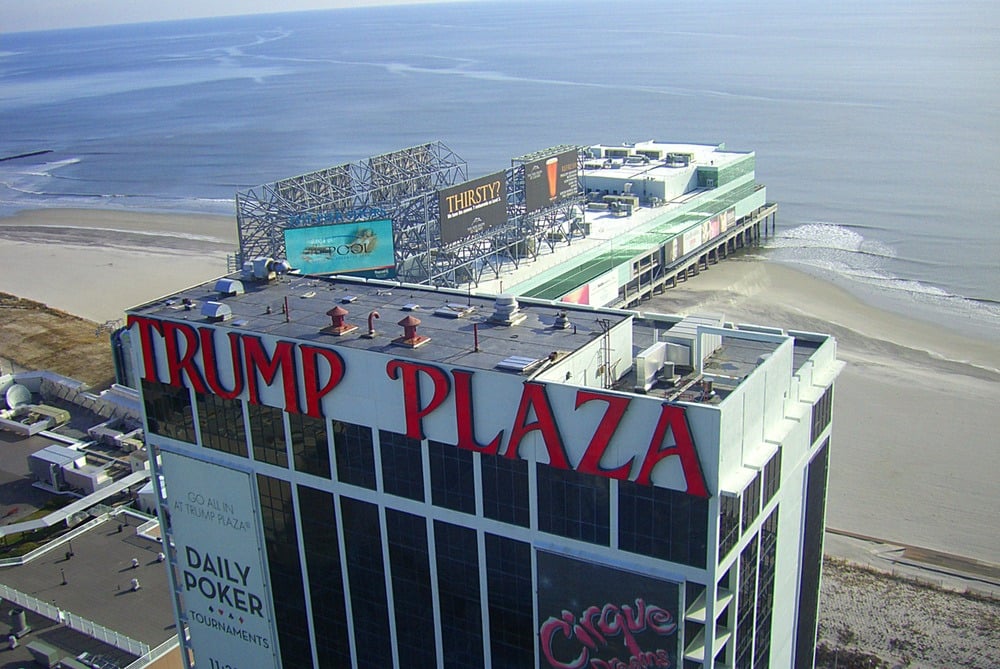
Image credit: Frank Romeo/Shutterstock
Competition from Trump’s own Taj Mahal, a mile away, began eating into revenues. By 1991, financial strain forced the casino to mortgage its parking garage for $25 million to avoid defaulting on payments. Struggling under $250 million in debt, the casino filed for a prepackaged bankruptcy in 1992 and scaled back expansion plans.
Ownership transitioned in 1995 to the newly-formed Trump Hotels & Casino Resorts.
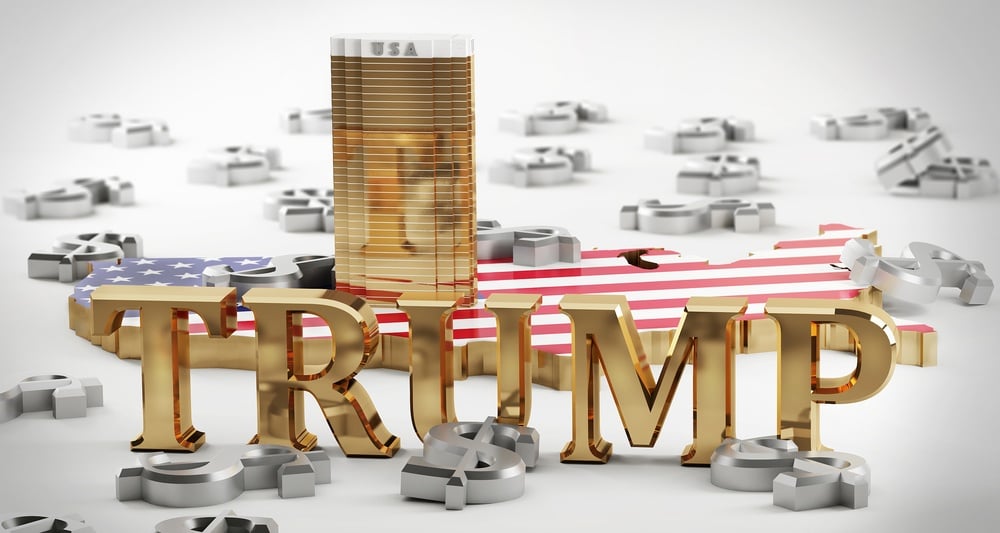
Image credit: pespo/Shutterstock
Bankruptcy and Final Demolition
The casino business continued to falter: Trump Hotels & Casino Resorts declared bankruptcy in 2004, reemerging as Trump Entertainment Resorts with Trump’s leadership role curtailed. Tensions reappeared in 2014, as Trump sued to remove his name from both Plaza and Taj Mahal, criticizing their condition. Trump Plaza finally closed in September 2014. After years of debate over its fate, the building was demolished in February 2021.
Trump’s World Fair: From Playboy to Demolition
Among Trump’s shortest-lived casino projects was the property known initially as Playboy Casino, which opened in 1981 and soon changed hands, rebranding as Atlantis in 1984. The casino operations couldn't survive, but the adjoining hotel did-until Trump bought both in 1989 for $63 million. Rebranded as Trump Regency, it reopened in 1992 under the management of a mortgage holder, before changing hands again. Trump reacquired it in 1995, investing $48 million and relaunching the property as Trump’s World Fair.
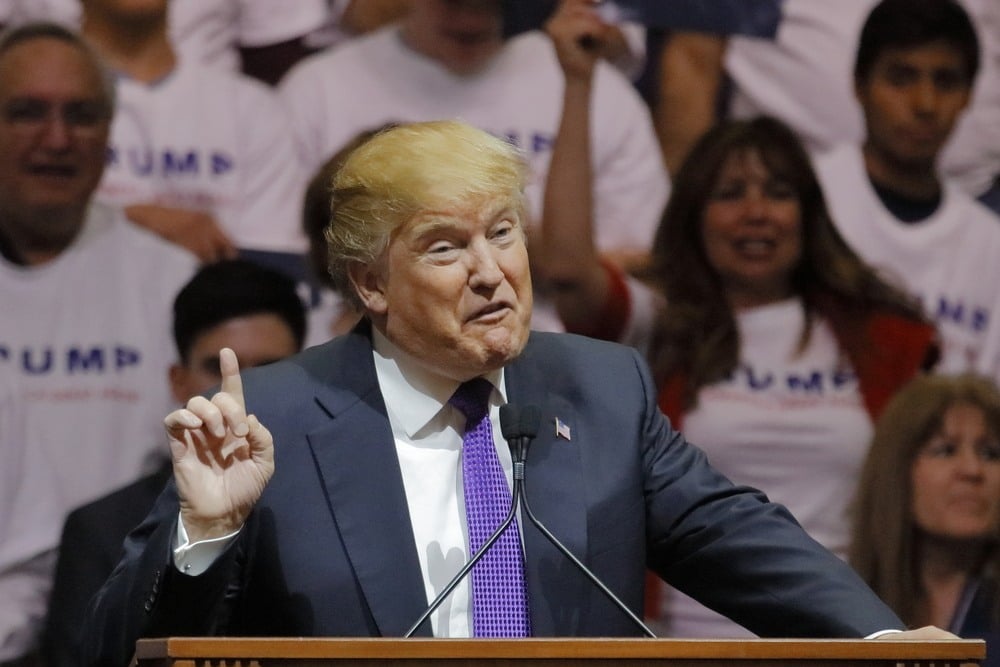
Image credit: Joseph Sohm/Shutterstock
Trump’s Foray into Indiana: Gary’s Riverboat Casino
With Indiana’s 1993 legalization of riverboat casinos, Trump set sights on bringing Vegas-style spectacle to Gary, Indiana. Backed by a promotional video featuring celebrities-including Gary’s own Michael Jackson-Trump’s proposal secured one of two available gambling licenses.
The Trump Casino riverboat launched in 1996, but financial troubles led to its inclusion in Trump Hotels & Casinos’ 2004 bankruptcy proceedings. Ultimately, Trump sold the facility to Don Barden, who renamed it Majestic Star II in 2005.
Trump Taj Mahal: Ambition, Rivalries, and Legal Troubles
The ambitious construction of the Trump Taj Mahal began in 1983 under Resorts International. Trump acquired a controlling interest after the company’s founder passed away, but New Jersey law forced him to devise plans to avoid running three casinos at once. An expensive power struggle ensued with media mogul Merv Griffin, leading to a drawn-out and public bidding war.
Trump ultimately secured the Taj Mahal for $273 million; the rest of Resorts International went to Griffin. To open the lavish new property hailed as the “eighth wonder of the world,” Trump raised an additional $675 million primarily via high-interest junk bonds.
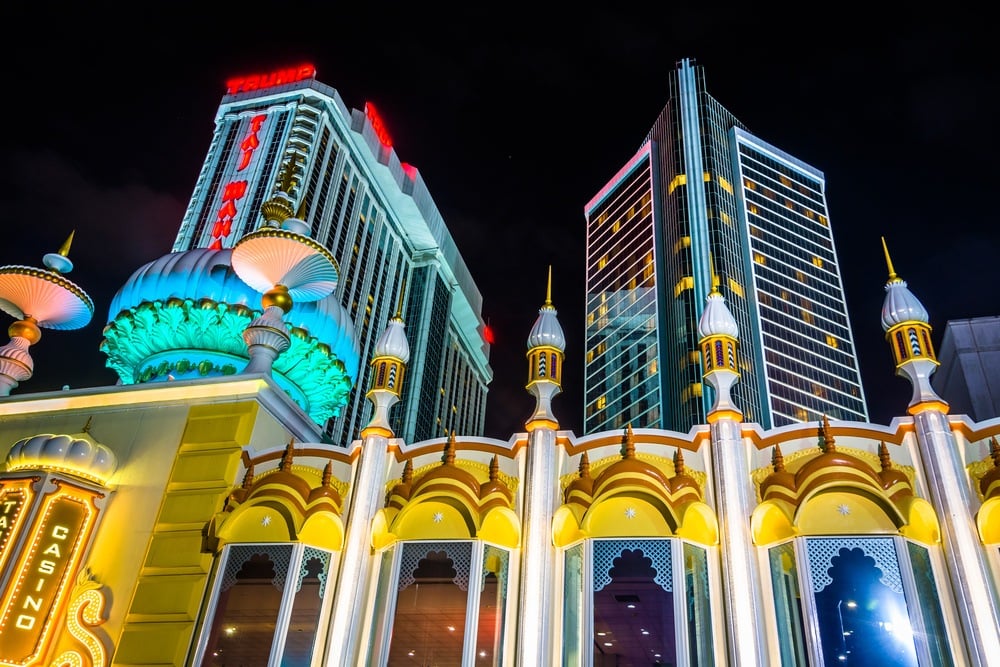
Image credit: Jon Bilous/Shutterstock
Just one year after opening in 1990, the Taj Mahal filed for bankruptcy, requiring Trump to share control with bondholders. Financial headaches aside, the casino also gained notoriety for violating anti-money laundering laws 106 times in its first year and a half, resulting in a record-setting $447,700 fine. Federal investigations also flagged the venue for frequent visits by organized crime figures, including Russian and Hong Kong syndicate operatives.
Beyond financial struggles and law enforcement scrutiny, the property remained a fixture until 2016, hosting significant events such as the first UFC fights organized by Dana White. It even opened the first casino strip club in the US in 2013. A threatened closure in 2014 ultimately led to the sale of the property to Hard Rock International in 2017.
The Casino Project That Never Launched: Trump International Hotel Las Vegas
Despite Las Vegas being synonymous with casino gaming, Trump’s only major endeavor in the city-a partnership with Phil Ruffin for Trump Tower Las Vegas-never actually resulted in a casino. Construction began with high hopes in 2002, but a combination of economic uncertainty and changed priorities caused the scrapping of an originally planned second tower and the casino floor itself.
Today, the Trump International Hotel Las Vegas-standing 64 stories tall and boasting luxury residences and hotel amenities-is the city’s tallest residential building but contains no casino. Eric Trump later remarked that the family deliberately chose to forgo pursuing a Nevada gaming license, preferring to cultivate a pure luxury brand unencumbered by the traditional cacophony associated with casino gaming.
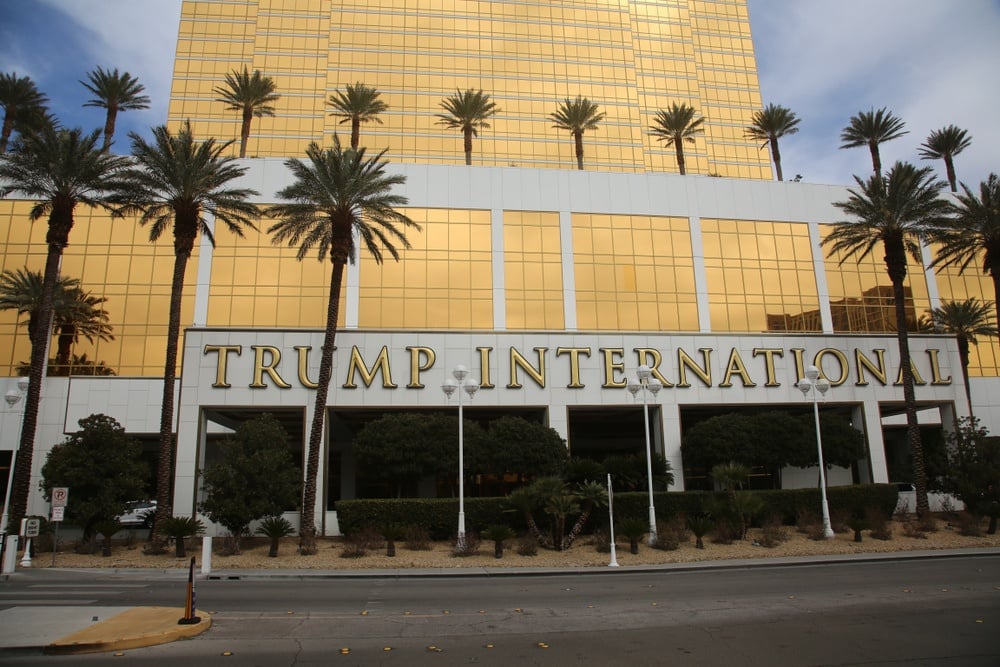
Image credit: Mikeledray/Shutterstock
Conclusion: Legacies of Triumph and Turmoil
Donald Trump’s journey through the casino world is a story of grand openings and spectacular closures, marked by aggressive expansion, fierce rivalries, multiple bankruptcies, and shifting regulatory tides. While his name may have fallen from casino marquees, the saga of Trump’s gambling ventures remains a vivid lesson in the unpredictable blend of risk, ambition, and spectacle that defines the casino industry.
Title Image credit: Sean Pavone/Shutterstock













